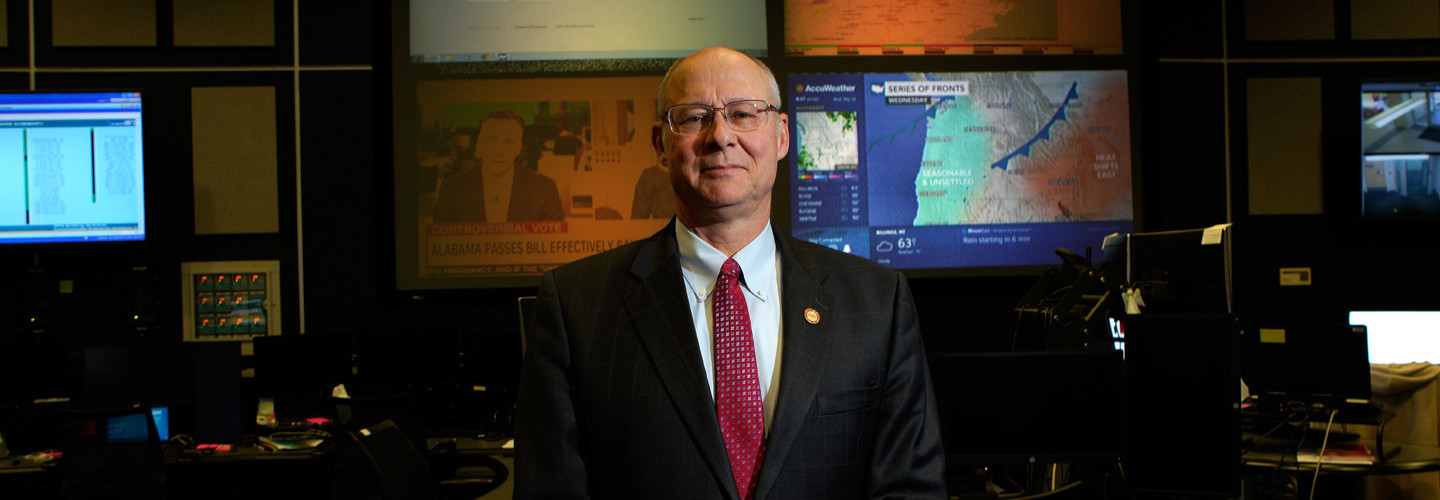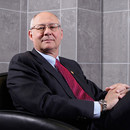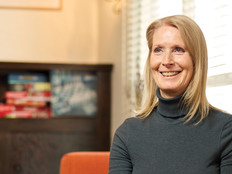Virginia CIO Nelson Moe is enjoying a turn in the spotlight as the rare continuing head of his state’s IT services under a second consecutive governor. After Gov. Ralph Northam reappointed Moe for another term, the Virginia Information Technologies Agency (VITA) settled a long-standing dispute with the former IT contractor that handled all of its services, providing Moe with long-sought flexibility to adapt Virginia’s technology infrastructure to meet new demands.
StateTech talked to Moe about what’s next for Virginia as the state moves forward to implement its IT strategy.
STATETECH: Could you outline what you’re working on right now?
MOE: People are the major priority. I want to set up a culture and an environment where individuals are maximizing their abilities. I want to provide opportunities, challenges and training along with showing appreciation for their efforts. With any service we provide, we must understand we now have to scale for 63 agencies, and they are very widely diverse organizations.
So, from my perspective, customer service is important. I also focus on making sure that our IT investments are cost-effective and we find sympathetic or sequential procurements in accordance with the Virginia Public Procurement Act. We also must provide services that are relevant to the state agencies VITA serves. For example, there’s only one Blockbuster left on the planet, so my original Blockbuster card isn’t very useful. People are getting their entertainment from more relevant, up-to-date and efficient services such as Netflix. At VITA, we want to provide relevant, effective and cost-efficient services.
Slowly but surely, we’re getting there. It’s been a rough road. We went through a large lawsuit with our former contractor. That’s done now. We’ve settled. That’s all public knowledge, and that’s in our rearview mirror. We’re still working through some of the effects of getting through that separation and setting up our new model, which is a multisourced environment with an integrator and six service suppliers.

STATETECH: I understand that you are interested in reorganizing your staff, in part so you can be a more public-facing official. Can you reveal more about that?
MOE: We are seeking a COO who can manage the day-to-day organization while the CIO spends more time explaining the value of IT, discussing the issues of stakeholders such as the General Assembly and the Cabinet, and the rates we have. I’ll spend more time explaining, “So, here’s how you use our service, here’s how the model is better.”
MORE FROM STATETECH: See how local agencies are using innovation labs to drive new solutions in government.
STATETECH: One of the priorities in your strategic plan is cybersecurity. I’m wondering if you might discuss your outlook and plans for Virginia and its cybersecurity posture.
MOE: Cybersecurity, in this case risk management, is very important to the commonwealth. It has been for many, many years, and it is still a high priority for this administration. We have a very strong CISO named Mike Watson; he knows cybersecurity backward and forward.
Our provider for cybersecurity helps us implement and manage the governance rules and the standards we have in place for the commonwealth. We turn to them to bolster governance and also for our cloud oversight service — to vet the computers and technologies when they are placed in the cloud.
STATETECH: Could you also elaborate on your cloud strategy?
MOE: In 2018, Gov. Ralph Northam issued Executive Order 19. Executive orders in Virginia have the force of law. This one directs agencies to look at whether cloud technologies can be used for existing technologies. We’re going through that now to get the cloud ready to go. Our approach is to aggressively pursue cloud services for both existing technology and a future state. When I say “cloud,” I use the word to mean considering everything — infrastructure platforms, Software as a Service and more. So, by the end of the day, we’re focused on moving our computers from a physical system into a virtual system.
MORE FROM STATETECH: Find out how different states are going on a smart state journey.
STATETECH: States historically have been a little slower than other large enterprises to move to cloud, and there are some valid reasons for that. How do you feel about the risks?
MOE: One of the advantages to the commonwealth in a move to cloud is that we don’t own the physical infrastructure. It’s all outsourced, so we don’t own the data center. It’s not a physical asset. So, from a financial perspective, there’s no objection to moving to the cloud. It’s easier for us to move into the cloud. We take the physical system that we were renting and move it to a virtual system.
One of my concerns about the cloud environment: It’s unregulated. The Federal Aviation Administration goes through certain steps to get approval for aircraft, drones and the like.
The cloud industry is not regulated, so it’s up to the buyers. It’s up to us to make sure we read the terms and conditions, service-level agreements, and operational agreements, and to know what we’re getting. And we provide that level of service to our agencies.
STATETECH: Are there any new technologies or developments that you’re particularly excited about?
MOE: We always want to do things faster. We’re trying to figure out how agencies can deliver business services faster and cheaper using IT. And so, we look at low-code or no-code services. We haven’t gone too far down the road with blockchain or artificial intelligence, but I find those interesting.
What’s exciting to me is that we’ve got a vehicle, a contract model, that we can build up like Legos. It’s built to adapt. I’m also excited to have the contractual flexibility to provide services, no matter what.










